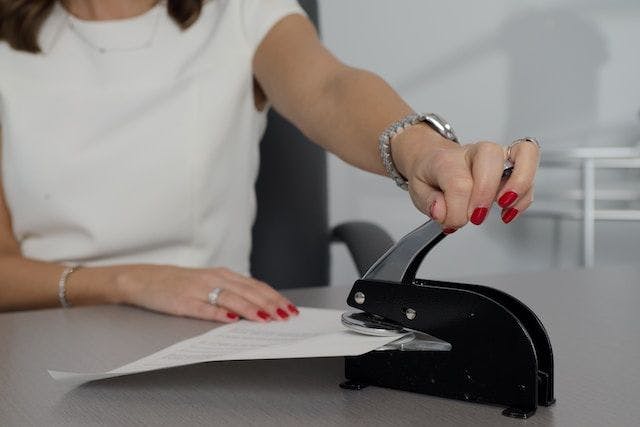
How to register a company in Luxembourg
In this article you will learn how to register a company in Luxembourg and what documents are required, as well as explore the diversity of business organizational and legal forms in the country
Incorporation of a company in Luxembourg gives you the opportunity to do business on a European and international level. The Grand Duchy offers favorable conditions for the growth and development of small, medium and large businesses.
Luxembourg has an extensive system of legal forms of business, with more than 20 different forms presented. Each legal form has its own set of rules, tax implications, and liability structures, making it essential for businesses to choose the one that best aligns with their goals and operational needs.
| Statutes | Capital | Investments | Shareholders | |
| IE | – | – | – | 1 |
| SCS | + | – | + | 2 |
| SENC | + | – | + | 2 |
| SCA | + | €30 000 | + | 2 |
| SA | + | €30 000 | + | 1 |
| SARL | + | €12 000 | + | 1 to 100 |
| SARL-S | + | €1 | + | 1 to 100 |
What is statues?
Company statutes are the set of formal rules that guide a company's operations and structure. They include details on organizational structure, shareholder rights, director responsibilities, financial record-keeping, and procedures for amendments. These statutes serve as a rulebook, outlining how the company functions and ensuring legal and efficient operation.
A sole proprietorship is a business structure where one person, the entrepreneur, makes all the major decisions. This person, also known as a self-employed individual in Luxembourg, is not considered a separate legal entity from the business.
In this setup, the self-employed person is fully responsible for any debts and must personally handle all financial obligations to others. They invest their own money into the business. While they get to keep all the profits, they also face all the risks themselves.
Just like other business forms, a sole proprietor needs to keep proper accounts. However, there's no requirement for a formal business statute or a specific amount of starting capital. This makes it the simplest way to register a business, often leading to fewer tax responsibilities.
Somewhat similar to a sole proprietorship form: here the partnership agreement is largely based on the participants as individual entrepreneurs who know and trust each other. There are usually three types of partnerships: société en commandite par actions — SCA, société en commandite simple — SCS and société en nom collectif — SENC.
Société en commandite simple — SCS
Société en nom collectif — SENC
Société en commandite par actions — SCA
The main difference between an SCA and an SCS is that SCA ownership shares are freely transferable, while those of an SCS are not.
The main difference between an SCA and an SA is that the first one is established by at least two partners just like an SCS: one general partner and one limited partner. In an SA, a single entrepreneur is sufficient to set up.
The main similarity between CSA and SA is that a share capital of at least EUR 30,000 is needed for registration, while SCS does not have the required minimum monetary capital.
Large enterprises often choose associations as the legal form of company registration. However, it can also be used for small and medium-sized businesses. The liability of all company founders is limited to the amount of their contributions, just as in the case of limited partners in SCS.
There are three main types of limited liability associations presented as legal form in Luxembourg:
Société anonyme — SA
Société à responsabilité limitée — SARL
Société à responsabilité limitée simplifiée — SARL-S
SA, SARL, and SARL-S require a minimum shared capital to register the business in Luxembourg
Among other things, associations have an obligation to keep an auditor. The number and type of auditors depend on the size of the business. For example, for a SARL with more than 60 partners, having a statutory auditor (réviseur d'entreprises) or an internal auditor (commissaire aux comptes) will be adequate.
In addition to sole proprietorships, partnerships and limited liability companies, there are other forms of business registration which are less commonly established than those described above.
European
Cooperative
Civil
Social impact
Simplified association
European cooperative
The term "business association" refers to membership organizations that support the business interests of their members. They are actively engaged in these efforts and work to solve business problems.
Temporary partnership
Group of economic interests
Agricultural associations
Franchising
Foundations are organizations that do charitable, social, religious, scientific, artistic, educational, sports, or tourist activities. They get most of their funding from investments, grants or gifts and do not aim to make a profit.
Anyone can create a foundation. Simply address your request to the Minister of Justice. If your application is approved, the Grand Duke will grant authorization through a decree.
How to choose the right form?
Consulting a notary public is worthwhile. They can help you choose the appropriate legal form for your business and advise on the required supporting documents to demonstrate professional qualifications and good faith. Additionally, they can draft your articles of association and register them with the Commercial Register (RCS) if necessary. You can seek guidance from the Luxembourg Chamber of Notaries or any legal notary.

The Luxembourg Chamber of Notaries website provides standardized forms of articles of association for SARL, SA, SCA
Regardless of which legal form of business an entrepreneur chooses - self-employed / sole proprietorship, LLC, partnership or other, he/she will need a physical address in Luxembourg. IEs (self-employed) often register a business at home. While companies (SARL, SARL-S, SA, etc.) find it easiest to resolve this issue by renting an office.
The room can be found in several ways:
- using websites specialising in office rentals: Immotop.lu, atHome.lu, Imperium International, Regus, etc..
- through the House of Startups in Luxembourg or other business incubators that offer office space.
Before initializing the next steps, check if the chosen commercial brand or company name is available for usage and has not yet been taken by submitting an online application to the Luxembourg Business Register (LBR) which is a part of RCS.
You need to apply for a certificate that proves availability of a company name. There are two ways to do this, both of which require the user to register on the RCS website:


Read more
You can get two kinds of responses from LBR. They will arrive in your personal cabinet on the official website as PDF documents.
Certificate of unavailability of the company name (non libre)
Certificate of availability of company name (libre)
The entrepreneur can download the PDF document from their LBR personal account within 20 days. They have 20 days from receiving the certificate to download it, whether the name is available or not. The notification that the certificate is ready and can be downloaded in the LBR is usually sent by e-mail.
Applications for a certificate of title come with a fee, which can be found in the RCS Fee Schedule. The price varies depending on the case and can reach several hundred euros.
All entrepreneurs who want to register a company in Luxembourg must obtain the necessary permits and accreditations to do business. In Luxembourg, the entrepreneur's required documents vary depending on the type of business they plan to register. For instance, a sole proprietorship usually only necessitates a business permit, whereas a limited liability company requires, at minimum, a statute.
Entrepreneurs engaged in commercial, artisanal, or intellectual activities that necessitate a business permit must apply for said permit.
What do you need to get business authorization?
- Professional integrity — meaning the company has been organized by a professional working under their own name.
- Professional qualification — meaning that the entrepreneur has the necessary education to carry out the planned activity whether trade, craft or intellectual.
- Physical address in Luxembourg — to obtain a business permit, the sole proprietorship must register at an address in Luxembourg. The address must have the necessary infrastructure for the relevant activities.
- Consistent and ongoing direct supervision by the permit holder. The permit holder must run the company themselves. Simply having a third party, even if they're allowed to run the business, is not enough to replace the permit holder's presence.
- Tax and business compliance means paying your taxes and running your business honestly, while also making sure to pay bills on time and keep your promises to customers.
There's a list of workers who need a special permit to be able to work in the profession.
Free professions such as lawyers, doctors, dentists, veterinarians, and statutory auditors require a special license to practice. This license can come from different government departments like the Ministry of Health or Ministry of Justice depending on the profession. Additionally, security guards, carriers, and other professionals also require a license or accreditation.
To show that you are qualified for a profession, you may need to verify your education, particularly if it was obtained outside the Luxembourg or European Union. The Chamber of Commerce may ask you to confirm that your professional documents are recognized in order to determine whether to approve your permit for working in a business.
Also referred to as Statutes or Notarial Deed of Incorporation. This document varies in content depending on the type of business being incorporated. Typically, a notary public in the Grand Duchy will draft and notarize this document. The Articles of Incorporation are an important component of the business formation procedure.
For SARL, SA, SE, SECA, SCA
For SARL-S, SCS, SENC, SECS
Sole proprietorship
General information that is usually stated in the articles
- name of the company;
- type of the company;
- planned period of existence;
- the names of the shareholders;
- information on the shared capital;
- shareholder's participation in the capital;
- chief managers' personal information;
- the duties and responsibilities of chief managers;
- form of management;
- the company's business activity object based on the NACE codes in force in the EU;
- the minimum cost of one share and the terms and conditions of transfer (if any);
- the company's registered office;
- provisions relating to the Annual General Meeting of Shareholders and the Board of Directors (if any);
- provisions relating to the accounting and financial statements.
The notary will create the articles of association in either French or German, based on what the parties prefer. If needed, an English version may also be produced, as long as it's followed by a French or German version. In case of conflicts, the French or German version will be considered the final one, unless the articles of association state otherwise.
What makes a notary useful at this stage?
The notary helps the entrepreneur collect and submit documents proving professional qualifications and integrity in order to obtain a work permit.
If the company needs articles of association, the notary drafts them while the entrepreneur collects the necessary documents. Afterward, the notary checks all the submitted documents and approves the statutes. The notary also assumes responsibility for solving the remaining administrative issues: registration with RCS and VAT registrations.
The services of the notary are subject to a fee. Notary fees are determined based on the type of transaction and are based on the scale of fees set by the Chamber of Notaries.
Still have questions about the business permit?

A corporate or business bank account is necessary to carry out transactions and deposit the authorized capital before registering a company. All entrepreneurs, regardless of the legal form of their business, including self-employed or sole proprietorships, need to open an account in the Luxembourgish bank.
For a sole proprietorship, the process of opening a corporate account is similar to that of opening a personal account. However, it's mandatory to mention the name of the company or the sole proprietorship. Although no authorized capital is required for a sole proprietorship, a business account is still necessary.
As for companies with capital, any entrepreneur must deposit the minimum authorized capital in a bank account before signing the articles of association.
SARL, SA, SARL-S, SCA, SCS, and other companies generally require a standard set of documents.


After all the paperwork has been done:
- The entrepreneur presents all necessary documents to the bank and must bring a draft of the articles of association.
- The bank opens an account based on the draft articles of association. This account remains blocked for all transactions until the company is incorporated. Capital is then deposited into the account, followed by the bank issuing a blocking certificate to freeze the funds until the company is fully formed.
- The certificate is handed over to the notary and serves as proof of payment of the authorized capital of the company.
- When the company is registered, the notary gives the entrepreneur a certificate to unfreeze their funds (certificat de déblocage).
- The entrepreneur submits this certificate to the bank together with the final version of the articles of association signed by all founders and any additional documents requested by the bank.
- The bank then unfreezes the capital and it becomes available for the spending to the company.
If you don't know English or one of the three official languages in Luxembourg, it's best to get a professional translator or interpreter's help. Applying for a general power of attorney will lessen the bureaucracy, but you still need to go to the bank in person.
The notary registers the certified documents with the Registration Duties, Estates and VAT Authority (Administration de l'enregistrement, des domaines et de la TVA) within 15 days of the signing of the articles of association.
The notary submits the documents electronically to the Luxembourg Trade and Companies Register (Registre de commerce et des sociétés – RCS) within one month after signing, so that the data is published in the electronic directory of companies and associations (Recueil électronique des sociétés et associations – RESA).
The publication takes place on the day of submission or on a fixed date chosen by the submitter within 15 days from the date of application.
Running a business in Luxembourg requires precision in paperwork. EasyBiz takes care of the accounting, taxes and administrative tasks so you can focus on growing your business.
Frequently Asked Questions (FAQ)
Is it necessary to open an account in Luxembourg to register a company?
Yes, an entrepreneur must have a corporate account to conduct transactions and deposit authorized capital before registering a company. All entrepreneurs, regardless of their business's organizational and legal form, such as self-employment or sole proprietorships, must open an account.
How to figure out which legal form to choose?
It depends on several factors, including whether you are operating the business alone or with partners if you are willing to manage the legal requirements, and if you have sufficient starting funds. Luxembourg offers over 20 legal structures, with the primary options being sole proprietorships, companies (SARL, SA, SARL-S), and partnerships (SENC and SCS).
What documents are required to register a company?
Business permits are required for certain professions, some also need licenses and certifications, as well as proof of specialization, articles of incorporation, and a certificate of business name.
Source: guichet.public.lu
We took photos from these sources: Unsplash, Gabor Koszegi